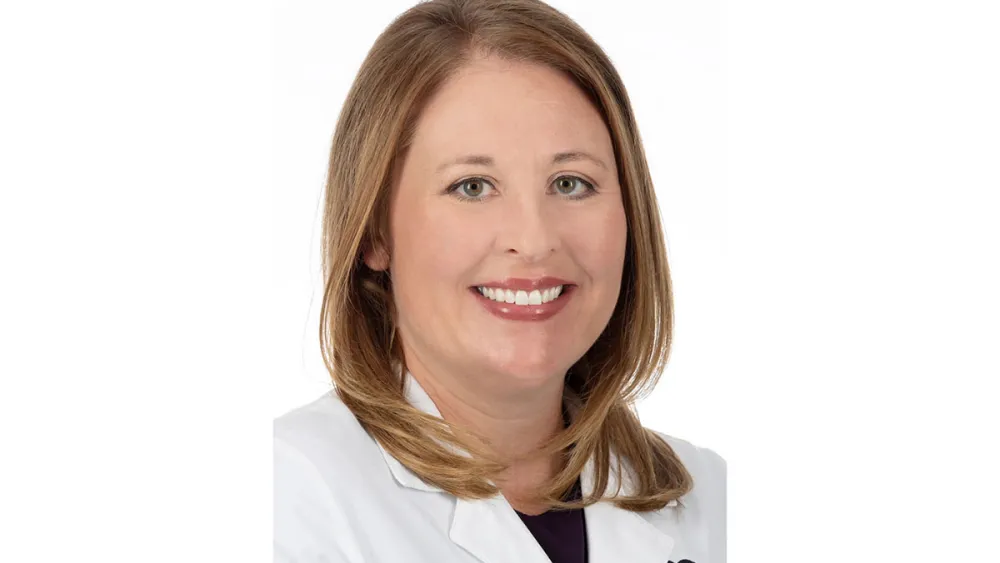





Our People
The Core of What We Do: Kristin Markel is passionate about making a difference for cancer patients
Published: April 1, 2025

In “The Core of What We Do,” you’ll learn more about Methodist’s core service lines – primary care, oncology, cardiology, women’s health and orthopedics/surgical services – and the people whose dedication makes them so impactful for our communities. To explore career opportunities at Methodist, visit bestcare.org/jobs.
Kristin Markel, AGACNP-BC, AOCNP
Nurse Practitioner
Methodist Estabrook Cancer Center Breast Care Center

Why is the oncology service line so important to Methodist and our community? How does it contribute to The Meaning of Care?
Breast cancer is the most common cancer in women, with one in eight women getting breast cancer in their lifetime. Last year alone, the American Cancer Society estimated, there were 1,770 new cases of breast cancer and 270 deaths from breast cancer in Nebraska.
Meanwhile, Methodist has become a trusted name in caring for patients with breast cancer. We’re a strong proponent of routine screening, early detection and patient education. When an abnormality is found, our breast specialists explain imaging findings to patients and go over the possibilities and the next steps in their journey – all prior to a biopsy being performed. Methodist also has the 3D mobile mammography coach, which provides mammography at the doorsteps of local businesses, making it that much more convenient for patients.
I believe our clinic strongly represents The Meaning of Care. Not only do we strive to do what’s best for patients, but it’s also a goal in our department to make sure patients are treated in a timely fashion and not waiting weeks to undergo a biopsy and then find out results. Every member of our team – from the mammography techs to our radiologists, medical assistants, nurses and surgeons – works very closely and is in constant communication to ensure that patients are well cared for and everyone on the team is up to speed on what’s going on with each patient.
Why is this service line so near and dear to you?
I’ve cared for cancer patients of all kinds for 17 years now. I have several breast cancer patients who have left a lasting impact on me. I have family members and lifelong friends who have gone through breast cancer. One of my former breast cancer patients even wrote one of my recommendation letters for graduate school to become a nurse practitioner. I think what’s exciting about the treatment of breast cancer is that with mammography, we’re catching things so early. And with the role of genetic testing, patients are getting to know and understand their risks for developing breast cancer before it even happens.
What’s something surprising about this service line?
We see not only breast cancer patients but also patients with benign breast disease. We also have a high-risk breast clinic, which I’m sure a lot of people aren’t aware of. Patients qualify for this based on their family history or a Tyrer-Cuzick score, a calculation that gives you a statistical percentage of your risk for developing breast cancer within the next 10 years and within your lifetime. Our other APRN, Morgan Tooley, is a certified genetics counselor and sees numerous patients per year, going over their genetic results and probability of developing breast cancer. With this service, we can advise patients on the best way to screen, whether with mammogram and MRI, or discuss prophylactic surgery if clinically indicated.
Tell us about your role and responsibilities. What does a day in the life look like for you?
My role within the breast clinic is to see new patients with breast concerns, whether that be a palpable lump, nipple drainage or possible breast infection in addition to routine follow-up and surveillance of patients with a history of breast cancer.
I rotate my time between the clinic at Methodist Estabrook Cancer Center and our clinic at the Methodist Women’s Hospital campus. Each morning, I review the patients on my schedule for the day. If a patient is scheduled to have a mammogram prior to our visit, I review the images before I see the patient. I often try and “pre-chart” or prep my notes with information on the patient’s history so I stay efficient and on time in clinic. Patient visits usually include the physical exam, trying to get to know each individual and ending each appointment with patient education on the important points of our visit. On Thursday mornings specifically, we have our breast tumor conference where all of our new breast cancer patients are presented to the panel of specialists and discussed. I really enjoy these weekly sessions, as I feel that I learn something each time, and it’s nice to hear each discipline’s perspective.
What do you enjoy most about your team/colleagues?
Like Methodist as a whole, we’re like a family. We can rely on each other. We communicate well, and we all care about doing what’s best for patients. Work is always more enjoyable when you can appreciate and enjoy spending time with the people you work with, and that’s always been true for me with my colleagues at Methodist.
Any memorable moments that stick out?
Given that I’ve taken care of oncology patients as a nurse and now an APRN, I’m fortunate that I’ve been able to see all aspects of a cancer patient’s journey. Recently, I had a patient describe symptoms to me that were very concerning. They weren’t breast-related, but I knew based on what this individual was telling me that they needed additional workup ASAP. Luckily, the tests I ordered ultimately led to a serious diagnosis that was caught very early, and this person was able to get the treatment they needed through another specialist at Methodist.
Why did you come to Methodist, and why have you stayed?
I did my nurse preceptorship on the Methodist Hospital Oncology Medical Surgical Unit in spring of 2007 and fell in love with the culture, the providers and the patients. I knew after graduation that I didn’t want to work anywhere else. After I graduated from APRN school in 2015, my career path led me away from Methodist for a little while. However, as soon as I saw an opening to return, I knew I had to pursue it because there’s nowhere else in the Omaha community that has the culture of family like Methodist.
For me, joining the Breast Care Center felt like coming full circle and coming home. The physician who started the clinic, James Reilly, MD, took care of a family member of mine when she went through her breast cancer journey. Now, with his retirement, I have the pleasure of carrying on his legacy even though I don’t think I’ll ever be able to fill his shoes.
What does The Meaning of Care mean to you?
To me, it's treating each person you encounter like a family member or friend. I’m very passionate about patient care, and what I love most about Methodist is that I’m also a patient of the health system and have never been treated like a number. Everyone is so friendly, caring and compassionate, and they want to do the best job they can for each patient. At Methodist, you truly feel cared about, and you know it’s genuine by how you’re treated.
What’s the best thing about your role at Methodist?
Honestly, it’s knowing I’m making a difference in the lives of others. I have been so blessed in my career to be able to work either for or with Methodist, and I’ve been able to establish so many relationships with providers across our community. I know I can reach out to any one of my colleagues to help me with the care of a patient.
What do you enjoy outside of your time at Methodist?
I love to read, go to movies and spend time with family. I spend plenty of time getting my kids to their numerous sporting activities. My goal, if I can ever find the time, is to learn how to play the piano.

